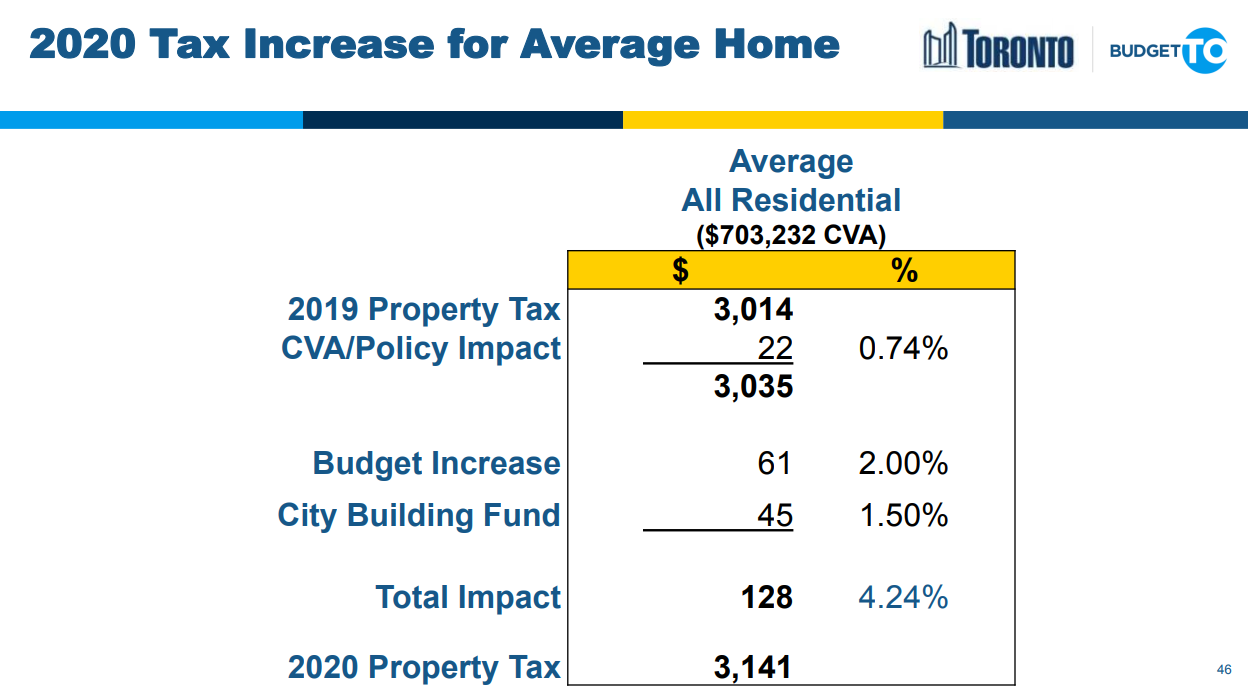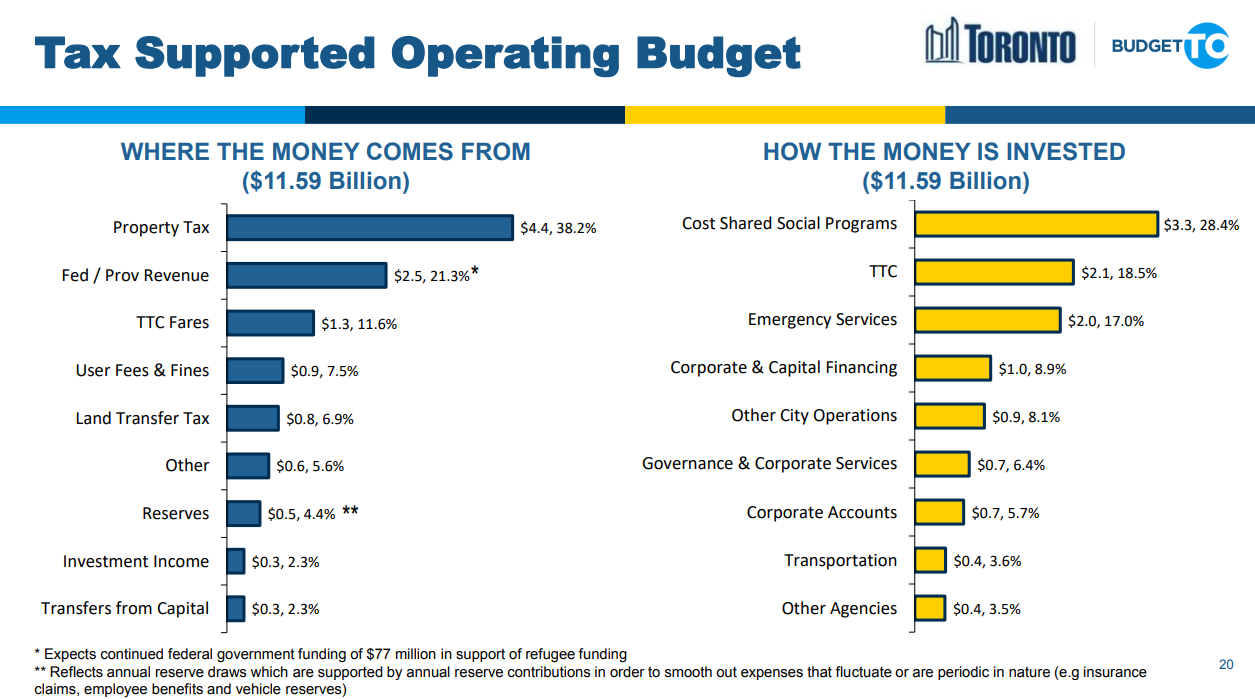It's more than a month until city council votes on its 2020 capital and operating budgets, but city staff laid out its proposals for this year, including increases for property tax and the mayor's new buildling fund.
With a property tax increase below the rate of inflation ($61), the new City Building Fund ($45) and the CVA policy impact, which primarily includes the city's education levy (22), the average home is looking at an increase of $128, which works out to $10.60 per month.

However, several councillors during questions noted other increases such as the 10-cent TTC fare, as well as payments for water and waste removal due to removal of rebates for those services over three years.
Those increases include around $27 for water and roughly $80 for small and medium garbage bin users, with the funds removed from the rebates going towards transit, community safety and recreation programs.
"When we're looking at affordability, we have to look at everything that's coming out of people's pockets on an annual basis," Cllr. Jennifer McKelvie said.
Cllr. and budget chief Gary Crawford said costs will go up understandably, but staff are trying to keep the impact as low as they can.
"What we try to do is we try to ensure that that cost goes up as low as possible," he said. "There are others who will want to raise property tax increases, three, four, 10 per cent, we continually want to try to keep them as low as possible."
Cllr. Mike Layton said unfortunately we're not seeing enough revenue to meet service demand, including addressing homelessness, child care and transit.
"Compare us to other jurisdictions, we have lower taxes, but are our services to the standard that we would want?" he said.

The biggest addition to the budget this year is Mayor John Tory's building fund, which is estimated to provide $6.6 billion for transit and affordable housing over the next six years.
Layton said we've waited much too long for bringing in such measures with limited revenue streams, but it's not nearly enough to meet Toronto's transit needs, including building a sufficient TTC infrastructure to meet population growth.
"Year-over-year, we were ridiculed for even proposing that the city needed more revenue, well fortunately this year the mayor has come in to say that he's willing to move on that point," he said. "There is more that we can do."
The budget's $51 million in savings includes $27 million in efficiencies, which included auditing measures from the provincial government.
The budget is also balanced on an assumption that $77 million is on the way from the federal government for the city's refugee resettlement program.
Crawford said in the unlikely case that the feds don't deliver, they'll have to draw on the city's rainy day fund.
"We had the same hole, $79 million last year that was sitting there, we had no idea how to fund it, the federal government did come," he said. "They may not be to the point where they can make those commitments, but I'm quite confident that they will actually make that."
While Layton proposed thinking about additional revenue streams such as vehicle registration feeds and parking levys, Cllr. Gord Perks reiterated his message that with services being underfunded, discussions around a sales tax has to happen.
"This is one of the first budgets in years where the city chief financial officer and city manager have not highlighted that need," he said.
The budget process still includes briefings next week, public deputations later this month with a special city council meeting on February 19th.
There's also another $67 million in new investments, such as in poverty reduction, climate change and public safety.
To read the full document, click here.